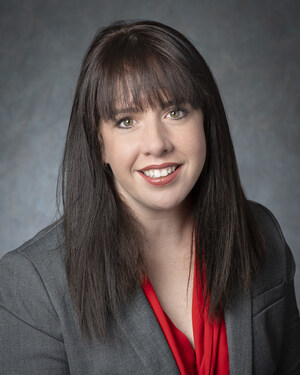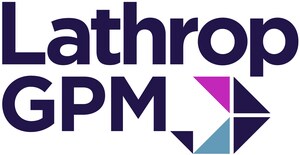KANSAS CITY, Mo., July 7, 2021 /PRNewswire/ -- Leaders in the food-processing industry appear unprepared to protect their organizations against a rising tide of food-safety claims – even as they signal confidence in their own company's standards, according to "Food Processing Trends, Outlook and Guidance Report," released today by national law firm Lathrop GPM.
The survey queried 100 U.S. agribusiness executives active in litigation and risk management issues. Nearly two-thirds foresee food-safety claims rising in the next year with 80 percent saying their organizations are prepared for that increase. However, less than half are evaluating their business processes with outside counsel, only 57 percent review their insurance policies annually, and just 43 percent have internal risk management teams in place to handle insurance issues.
"We've known for a long time that many businesses don't have the resources to maintain a deep bench of risk-management talent," said Kim Winter, partner and Insurance Recovery & Counseling practice group leader at Lathrop GPM. "In an environment where food-safety claims are rising and change is coming fast and from virtually every direction, business leaders should consider investing in dedicated risk-management professionals, or at minimum, making sure that someone inside the company is designated to know what coverage they have, when policies renew, and what types of policies and requirements for giving notice are in place. These seemingly mundane details could be the difference between millions of dollars in coverage, and zero coverage."
Food-Safety Claims Rising, but Preparation Lags
The survey was conducted in the first quarter of 2021, nearly a year after the official declaration of the COVID-19 pandemic. Reflecting on the tumultuous year, 60 percent of respondents noted an increase in food safety-related claims since the pandemic began and just 53 percent expect a return to pre-pandemic operating practices.
More than 90 percent of respondents believe that contaminant-related risks are important to their businesses but just a third are receiving guidance from outside counsel on those risks. Notably, regulatory, legal, and public pressures have increased around per- and polyfluoroalkyl substances (PFAS), otherwise known as "forever chemicals."
"It's good to see that contaminants are top of mind – especially given the rise in litigation related to PFAS, which has been used for decades in everything from nonstick cookware to stain-resistant fabrics," says Mara Cohara, partner and leader of the Environmental and Tort Practice Group at Lathrop GPM. "PFAS will be a major focus for regulators this year – and as a result there will likely be increased litigation. Business leaders should seek guidance on contaminants before they find themselves defending their companies against such claims."
Executives Lack Guidance from Outside Counsel on Critical Issues
When it comes to outside resources, 23 percent of respondents say they use insurance brokers as opposed to outside counsel to dispute coverage denials. Policyholders who go this route forsake having a dedicated advocate – with privilege-protected communication – for their point of view, one who brings deep experience interpreting policy language and tracking courts' rulings regarding insurance disputes, which is essential if the dispute turns into litigation. Thirty-seven percent said they rely on outside counsel for these matters, but most are not receiving counsel's guidance on important issues, including insurance claim resolution, environmental practices and regulations, risks related to contaminants and food-safety matters.
"Outside counsel may not be crucial on every insurance claim, but there are certainly instances in food processing where obtaining coverage can be viewed as a fiduciary duty, such as with mass food-safety matters," said Nancy Sher Cohen, a partner and leader in Lathrop GPM's Insurance Recovery & Counseling group. "In those cases, processors need not only guidance but also staunch, skilled advocacy – something they cannot get from their brokers."
Given this quickly evolving landscape and the reactive stance of many food processors evidenced by the survey, the report concludes with actionable guidance on both insurance recovery and issues related to contaminants, including PFAS.
"Last year, we saw the agribusiness sector quickly pivot and make incredible changes to manufacturing, production and nearly every other aspect of their businesses," said Jay Felton, partner at Lathrop GPM and leader of the firm's Agribusiness & Food industry group. "Now, with the end of the pandemic in sight, industry leaders also need to refocus on the risks that lie beyond."
Other Key Findings:
- Thirty-three percent of respondents agreed and 43 percent strongly agreed that COVID-19 systematically impacted their company's approach to worker safety.
- The most concerning food safety risks for respondents were changes in food production and technology (67 percent) and threat of foodborne illness (59 percent).
- Seventy-one percent believe they have adequate insurance coverage and that they understand how to best leverage the coverage to mitigate risk. But just 43 percent have internal teams to handle insurance claims.
- Forty-six percent filed more than 10 insurance claims in the past year and 70 percent filed at least one. But 36 percent didn't challenge denials.
A complete version of the report can be accessed here.
About Lathrop GPM LLP
Lathrop GPM is a full-service, Am Law 200 law firm with offices in Boston, Boulder, Chicago, Dallas, Denver, Jefferson City, Kansas City, Los Angeles, Minneapolis, Overland Park, St. Cloud, St. Louis, and Washington, D.C. Our attorneys help businesses, organizations and individuals grow and succeed, anticipate trends, plan for challenges, and bring their visions to life. For more information, visit www.lathropgpm.com.
SOURCE Lathrop GPM

Related Links
WANT YOUR COMPANY'S NEWS FEATURED ON PRNEWSWIRE.COM?
Newsrooms &
Influencers
Digital Media
Outlets
Journalists
Opted In





Share this article